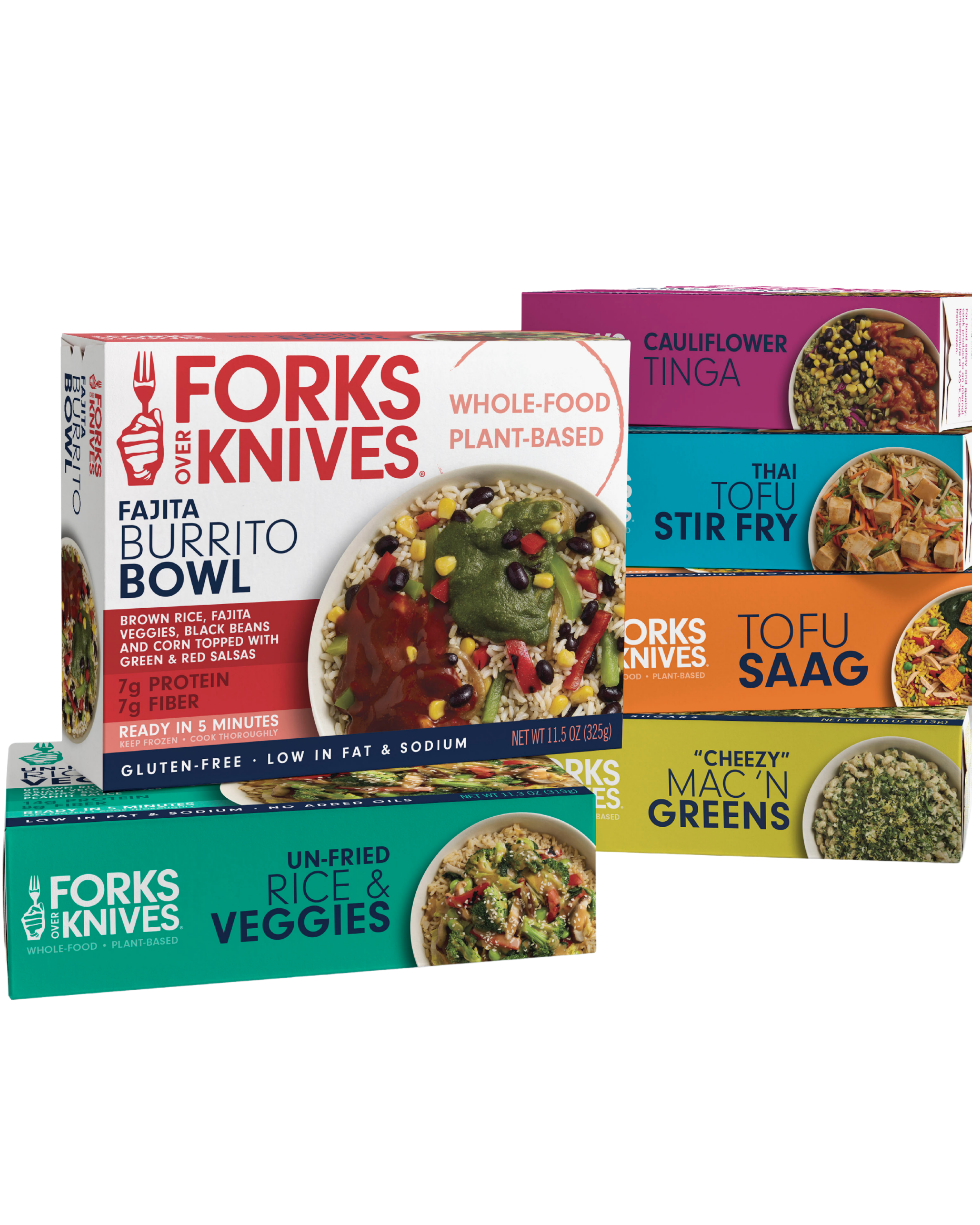Are potatoes dangerous? Do potatoes cause diabetes?
You might think so if you followed the headlines. In 2006, the media was full of reports making these claims, some of which are still being made today. All of this attention was based on the results of a study published in the American Journal of Clinical Nutrition.1
The prospective study followed 84,555 women in the famed Nurses’ Health Study. At the start, the women, aged 34–59 years, had no history of chronic disease, and completed a validated food frequency questionnaire. These women were then followed for 20 years with repeated assessments of their diet. The study concluded, "Our findings suggest a modest positive association between the consumption of potatoes and the risk of type 2 diabetes in women. This association was more pronounced when potatoes were substituted for whole grains.”
So, let’s take a closer look at the study and see how accurate these claims are, and where the truth really lies. Specifically, we will look at five key points.
Are all potatoes equal? Or “When is a potato not a potato?”
In the study, participants were asked how often, on average, in the previous year, they had consumed potatoes. The options they were given to choose from were either:
a) One baked or one cup mashed potato
b) 4 ounces of french-fried potatoes
These were the only two choices the subjects could pick from. So, while these may represent how potatoes are often consumed here in America, they do not account for any differences in how the potatoes were prepared and served. And mashed potatoes were counted in with baked potatoes, which are two completely different forms of preparing potatoes.
In America, whether it is at home or in restaurants, most all mashed potatoes are made with milk and butter and/or margarine. In addition, most all baked potatoes are served with butter, sour cream and/or cheese.
The following analysis represents these important differences. They are of a serving of mashed potatoes, a loaded baked potato and a plain baked potato as served in a popular national restaurant chain. They are typical for how mashed potatoes and baked potatoes are often served and consumed in America. In addition, I have included the analysis of a plain medium baked potato for comparison.
Mashed Potatoes (Restaurant):
367 calories
24 grams of fat
59% calories from fat
11.4 grams of saturated fat
28% calories from saturated fat
9 milligrams of cholesterol
Loaded Baked Potato (Restaurant):
505 calories
22 grams of fat
39% calories from fat
10 grams of fat
18% calories from saturated fat
30 milligrams of cholesterol
Regular Baked Potato (Restaurant):
329 calories
4.5 grams of fat
12% calories from fat
.4 grams of saturated fat
1% calories from saturated fat
22 milligrams of cholesterol
Baked Potato (Home):
160 calories
.2 grams of fat
1% calories from fat
.1 grams of fat
.05% calories from saturated fat
0 milligrams of cholesterol
So, compared to an at-home, plain baked potato:
- The mashed potato gets more than ½ its calories, plus nearly all its fat (about 24 grams) and cholesterol (9 mgs) from "non-potato" ingredients;
- The loaded potato gets more than 2/3 of its calories, plus nearly all of its fat (about 22 grams) from "non-potato" ingredients;
- Even the regular baked potato from the restaurant gets ½ its calories, plus nearly all its fat (about 4 grams) and cholesterol from "non-potato" ingredients (most likely oil and/or butter used on the outside and/or as a regular topping).
As we can see, the potato is contributing only a small percentage to what is most likely being counted as “potatoes” in this study. The association applied to potatoes may be more accurately applied to how potatoes are prepared and consumed and the toppings they are served with here in America, more so than just the potato itself. The study admitted that "cooking methods" were not assessed, so it is safe to assume that these were typical Americans consuming potatoes in the way they are typically served.
In addition, other studies on the Nurses database show the majority of their diets are not low fat, low saturated fat, low cholesterol or high fiber which confirms that they are not choosing or consuming the healthier versions.
So, when is a potato not a potato? When nurses in America consume them.
The Potato: Is It a Marker for Something Else?
In this study, was the potato the problem itself, or was the potato acting as a marker and pointing to something else that was associated with potato consumption?
Quoting the researchers:
"White potatoes and French fries are large components of a “Western pattern” diet. This dietary pattern is characterized by a high consumption of red meat, refined grains, processed meat, high-fat dairy products, desserts, high-sugar drinks, and eggs, as well as French fries and potatoes. A Western pattern diet previously predicted a risk of type 2 diabetes. Thus, we cannot completely separate the effects of potatoes and French fries from the effects of the overall Western dietary pattern.”
The researchers found that the study subjects who ate more potatoes also ate more red meat, more refined grains and consumed more total calories (in fact more than 500 additional calories per day). In addition, potato intake was also associated with higher intakes of saturated and trans fat, and less physical activity.
So, was the potato the problem, or was the potato a marker for a dietary pattern and lifestyle that was responsible for the results? In this study, the potato seems to be a marker for a high-fat, high refined grain diet.
Trends and Truth in Taters
If a food really is a causative factor in a disease, then as we consume more of the food (as an individual or as a nation) we should see the disease rates go up accordingly. In addition, when we remove or lessen the consumption of the food, we should see disease rates (as an individual or as a nation) go down. However, this is not the case for potatoes and diabetes. Let’s take a closer look:
Total Potato Consumption per person per year:
1970: 122 pounds
1996: 145 pounds
2008: 117 pounds
Prevalence of Diabetes (% of population):
1970: 2.00%
1996: 2.89%
2008: 6.29%
We see here that consumption of potatoes is trending down since 1996 yet the prevalence of diabetes is rising faster than ever. In fact from 1996 to 2008, potato consumption fell 19% while the percentage of people with diabetes increased by more than 200%.
Most importantly, the prevalence of diabetes really began to increase in 1996-1998, which is the same time that potato consumption began to fall sharply.
Replication
In science, the results of any one study are always interesting but never prove anything unless they can be replicated and/or reproduced. Reproduction and replication are what increase the validity of any claim.
In a 4-year prospective study of 36,787 adults which was done one year later, researchers investigated the association between a variety of dietary patterns and type 2 diabetes.3 The study results, which were published in the American Journal of Epidemiology, found an association between potatoes and diabetes only when they were cooked with oil. In fact, they concluded that consuming a variety of cooked vegetables, including potatoes, cooked in ways other than frying, was associated with a reduced risk of developing type 2 diabetes.
Other studies, similarly, have not found any correlation between diabetes and plain potatoes, and another also showed a decrease incidence of diabetes.2,3
What Causes Diabetes and Do Potatoes Play a Role?
During the 20 years that the subjects in the Nurses study were followed, we saw a dramatic shift in the dietary and lifestyle pattern of Americans. Not only has potato consumption and the type of potato changed dramatically, but there have been significant changes in other areas. Americans have sharply increased their consumption of refined sugars/sweeteners, refined grains/carbohydrates, added oils/fats, hydrogenated fats/trans fat, cheese, calories, etc. Meanwhile the percentage of Americans who are overweight, and even obese, increased, while the percentage who are active fell dramatically.
These factors, and not the potato itself, are what is responsible for the dramatic increase in the incidence of diabetes. Sure, mashed potatoes, loaded baked potatoes and french-fries, which are calorie dense, high in fat, saturated fat, cholesterol, sugar, and salt increase your risk for disease and should be avoided.
However, there is no credible evidence that potatoes, when consumed close to their natural state and cooked conservatively by baking, boiling, and/or steaming, will cause diabetes or are associated with an increased risk. In fact, potatoes have long been part of healthy diets around the world.
A more detailed version of the article was published here.
1 Potato and French fry consumption and risk of type 2 diabetes in women– Am J Clin Nutr 2006;83:284 –90.
2 “Dietary Patterns and Risk for Type 2 Diabetes Mellitus in U.S. Men. Ann Intern Med. 2002;136:201-209.
3 Dietary Patterns and Diabetes Incidence in the Melbourne Collaborative Cohort Study Am J Epidemiol 2007;165:603–610
Related News
Get Our Best Price On The Forks Meal Planner

Forks Meal Planner takes the guess work out of making nutritious meals the whole family will enjoy.
Master Plant-Based Cooking!

Our new course features over 100 lessons, 50+ recipes, downloadable guides, and more!
New Frozen Meals!

Introducing our new frozen meals: Doctor-recommended, chef-crafted, & ready in minutes.




